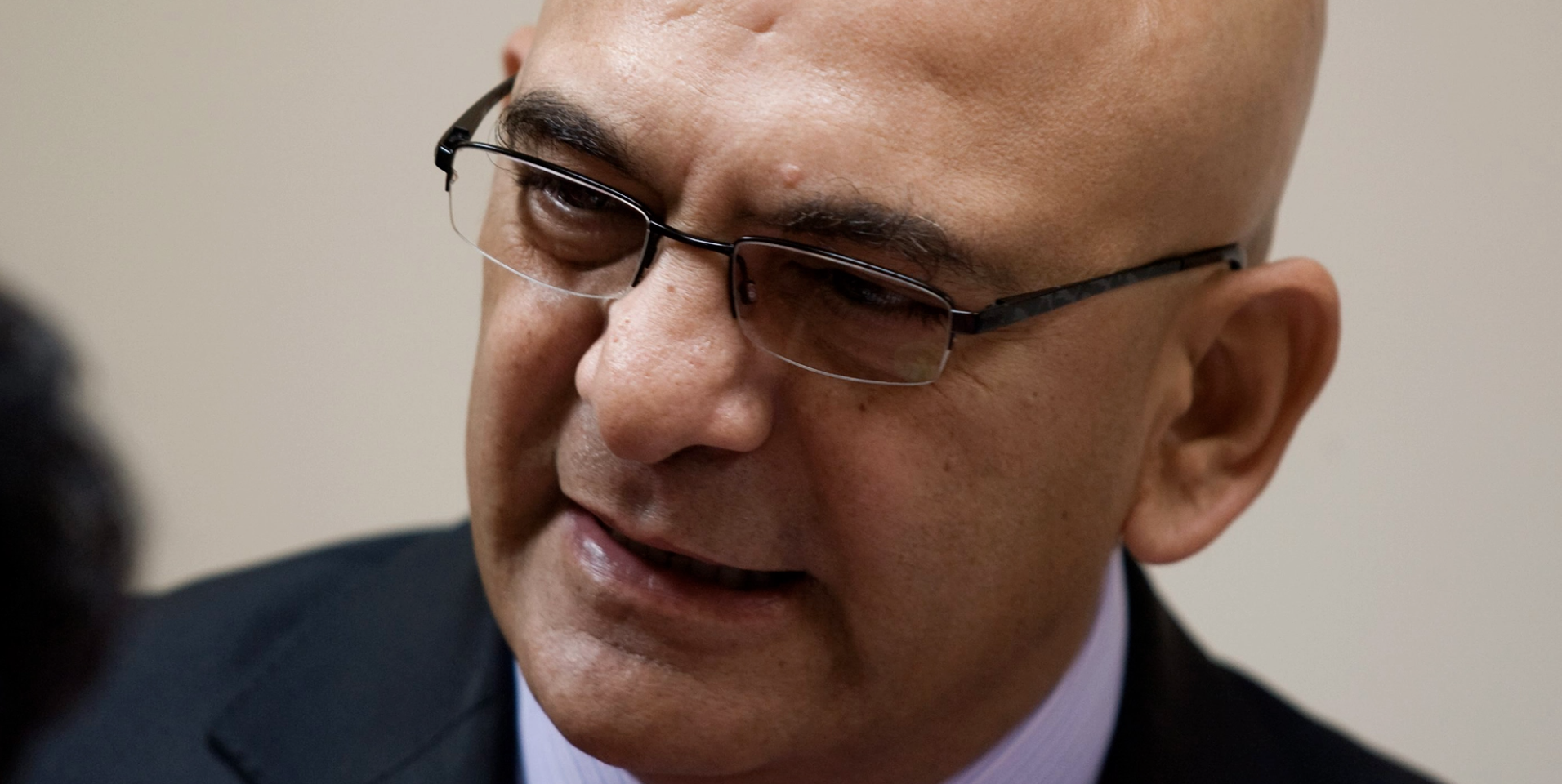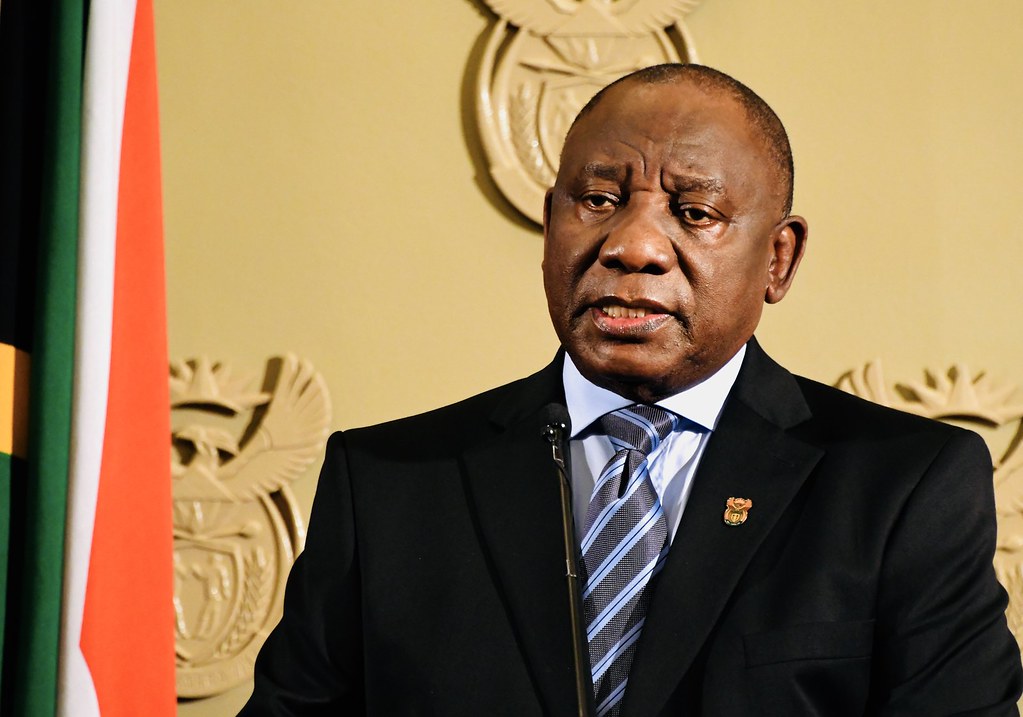News
Why Mo Shaik’s Rattle and Roll Just Doesn’t Rock
South Africa’s High Commissioner to Canada, and former intelligence supremo, Mo Shaik, recently urged Ottawa to help broker an end to Russia’s war in Ukraine.

Director, The Brenthurst Foundation

Research Director, The Brenthurst Foundation

Mo Shaik called on the Canadian government to change its course on the war. He argued that continuing to send arms to allow Kyiv to defend itself would only prolong a conflict that is aggravating hunger in developing countries.
Shaik should be credited for an unequivocal condemnation of the invasion, in contrast with the weasel words emerging from the Department of International Relations and Cooperation (Dirco).
Shaik said in an interview: “Let me just say it categorically; South Africa is opposed to the invasion of Ukraine. The violation of the UN Charter is unacceptable to us. The territorial integrity of Ukraine must be maintained.”
Yet South Africa has refused to support UN resolutions condemning the invasion. It was among the 32 countries that abstained from the most recent UN resolution calling for Russia to leave Ukraine.
A large majority – 141 countries – voted in favour of the resolution while seven countries voted against it, including, of course, Russia.
Fifteen African countries abstained (Algeria, Angola, Burundi, Central African Republic, Republic of Congo, Ethiopia, Gabon, Guinea, Mozambique, Namibia, South Africa, Sudan, Togo, Uganda and Zimbabwe); two voted against (Mali and Eritrea); and seven (Burkina Faso, Cameroon, Equatorial Guinea, Eswatini, Guinea Bissau, Senegal, and Tanzania) failed to vote.
Still, 30 of 54 African countries voted for the resolution condemning Russia.
Africa’s overwhelming support for Ukraine would seem to be in line with public sentiment in key states. Recent opinion polls in South Africa, Zimbabwe and Tanzania, for example, show that, respectively, 74%, 58% and 77% of the public condemn the Russian invasion. In South Africa’s case, 80% of those polled said that the government should support a country invaded by its neighbour.
Perhaps they are thinking about what South Africans would want the West to do if SA was invaded. Sit on the sidelines making hollow statements? Or help SA to defend itself?
Still, the majority of the world’s population lives in countries that have opted against condemning Russia for the invasion, including China and India, which between them make up 36% of the world’s population.
Countries that make up the bulk of the global economy are against Russia and support Ukraine.
This may help to explain why some countries prefer to support Russia, seeing this as part of a wider ideological power struggle. Others depend on trade with Moscow; some are beholden to Russian arms flows and security assistance (such as Mali, Sudan and Eritrea); and, for some, they simply want to sit on the fence and stay out of it.
There are also more narrow interests, including Russian funding for ruling parties (including the ANC) and the protection and other opportunities this affords to elites, and historical ties between liberation movements and their Soviet sponsors – this goodwill one largely inherited by Russia even though Ukraine was part of that mix.
Staying out of it is not really an option, however, as Shaik admits, since the conflict is aggravating global hunger in vulnerable societies, including across Africa.
The rise in food, fertiliser and fuel prices has driven up inflation in a continent where households already spent more than half of their income on food and energy. The comparative figure in the developed world is closer to 15%.
If you put an outcome of a negotiation as a requirement to negotiate, then you’re not going to have negotiations.
Staple food prices in Africa rose by nearly one-quarter between 2020 and 2022. African countries import around 100 million tonnes, or $75-billion, of cereals annually – the Russian invasion triggered a shortage of around one-third of this amount, along with an increase in the cost.
Hence the Stasi-trained Shaik’s quite reasonable argument to promote a peace settlement between the two main protagonists, in the process unequivocally condemning Russia’s territorial intrusion of Ukrainian sovereignty.
But this is about the point that reason ends and hubris takes over.
“If you put an outcome of a negotiation as a requirement to negotiate, then you’re not going to have negotiations,” said Shaik.
If one follows this logic with South Africa’s negotiations, then the end of apartheid was not a prerequisite. Pretoria tries to attempt moral equivalency between the wars in Iraq and Afghanistan and the conflict in Ukraine, no matter the differences. But it fails to use the same equivalency over South Africa’s negotiations themselves.
At the very least, the parties have to agree to a ceasefire to start talking.
To not funnel arms to Ukraine would hardly allow for negotiations, which are traditionally successful only when all parties to a conflict realise that there is more to be gained by ending the fighting. Not arming Ukraine will hardly provide that balance.
Then there is a troubling omission. Shaik said nothing about not supplying arms to Russia. Perhaps the former chief spook knows more than most about what happened when Russia’s Lady R docked in Simon’s Town to unload and load unmentionable cargo in the dead of night.
Instead of using the opportunity of the first year of the war to double down on peace, South Africa has undermined these calls to double down on support for Russia, including the hosting of the Russian and Chinese naval exercises off Durban. This came on the back of the Lady R incident, the about-turn-pause-about-turn on SA’s ICC membership, and now the mooted visit by Russia’s president Vladimir Putin to South Africa for the BRICS summit in August.

Actions speak louder than words. The SA “condemnation” of the invasion and the breaching of the UN charter looks hollow, even hypocritical, when set alongside the abstention at the UN and the dodgy dealings with Russia.
Rather than virtue signalling to the ANC’s Russian comrades, Pretoria’s thinkers – and they must exist – should be thinking about what Ukraine’s defeat in this war would mean.
This would be the moment, not of sudden catastrophic defeat, but when it becomes too difficult to maintain a semblance of normal life in Ukraine. The encouragement this could provide to others seeking to add to their territory through conquest is one thing, but the impact on the post-1945 global security architecture is another altogether.
If Pretoria is currently concerned, even angered, by the current impacts of the war on Western aid flows to Africa, then this scenario would likely be far more devastating. It would be one of containment and massive Western rearmament.
They might also think about the consequences for Africa if Russia “wins”, is emboldened and seeks to contest Western influence, beyond offering a fillip for authoritarians and a setback for liberalism. Is African security and prosperity more or less likely as Russia seeks to challenge Western interests?
The Russian war amounts to much more than agreement on shared interests, operational concepts and strategies, and even peace processes. The invasion reflects – as the former German defence minister Annegret Kramp-Karrenbauer, among others, has reminded – differences between values and ways in which global security differences can be resolved.
Hence the Western investment in Ukraine’s security is – if it were possible for the children of the ANC to think outside of the bars of their ideological playpen for even a moment – an investment for us all.
And there is something else.
“I just hope they could stop for a moment and reflect [on] how much Canada has contributed to peace in the world,” said Shaik. “And why throw that away?”
He might consider the same argument on South Africa and its moral authority on human rights. Why throw that away for Putin’s Russia?
This article originally appeared on the Daily Maverick
Photo: Gallo Images

